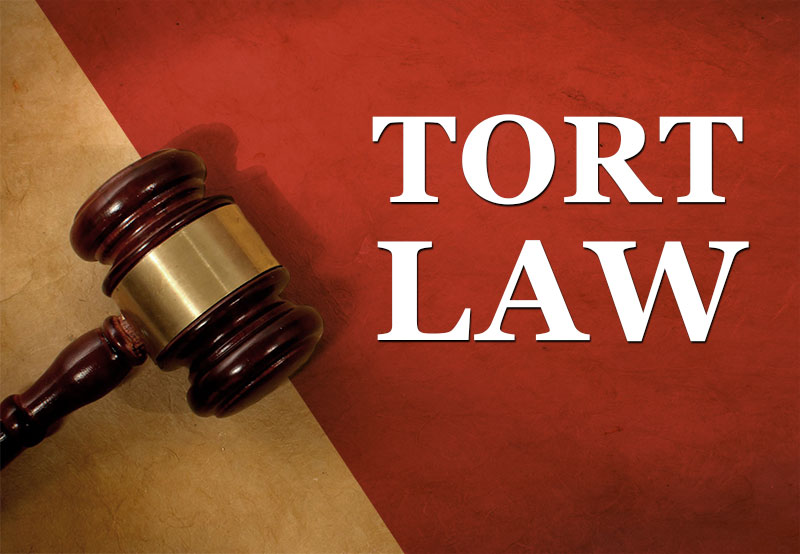Introduction To Tort
Introduction To Tort
What is Tort ?
In simple word Tort from French means "wrong," a civil
wrong or wrongful act, whether intentional or accidental, from which injury
occurs to another. Torts include
all negligence cases as well as intentional wrongs which result in harm.
Tort is the breach of
some duty (independent of any contract), which gives rise to a civil cause of
action, and for which the Civil Courts award compensation .
Tort is a wrongful act other than a
breach of contract for which relief may be obtained in the form of damages or
an injunction. According to Merriam-webster.
According to
Salmond it is “a civil wrong for which
the remedy is a Common Law Action for unliquidated damages, and which is not
exclusively the breach of a contract or the breach of a trust or other merely
equitable obligation ”
In Indian Limitation
Act section 2 defined “tort” as “a civil wrong which is not exclusively the
breach of a trust.”
Nature of the Law of Torts
1.
Tort
is a private wrong that contravenes the legal right of an individual or a
group.
2.
The
person who engages in tort is called “tort-feasor” or “Wrongdoer”.
3.
The
place of trial for tort is Civil Court.
4.
Tort
litigation is compoundable which means that the complainant can withdraw the
suit filed by him.
5.
Tort
is a specie of infringement (the act of breaking the terms of a law, agreement,
etc.; violation) of a person’s rights or civil wrong.
Salmond maintained that there is no English Law
of tort , there is merely an English law
of torts . According to this dictum
, the law of torts consists a number of specific rules prohibiting certain harmful
acts. In other words , according to this school of thought , there is only a
law of torts (i.e. specific well-defined wrongs) and no general law of tort .
This means there is a list of acts and omission which in circumstances , are
actionable in a court of law.
The difference between tort and Crime
A tort is a wrongful act that
injures or interferes with another's person or property. A tort case is a civil
court proceeding. The accused is the "defendant" and the victim is a
"plaintiff." The charges are brought by the plaintiff. If the defendant
loses, the defendant has to pay damages to the plaintiff.
A crime is a wrongful act that
the state has identified as a crime. A criminal case is a criminal proceeding.
The accused is also called a 'defendant". The victim is the person who has
been hurt or the state of Georgia or other governmental entity. The charges are
brought by the government. If the defendant loses, the defendant must serve a
sentence. A fine is paid to the government and there is possible restitution to
the victim.
The same act may be both a crime and a tort
" During an
argument, Anik slaps Ashik in the face." This event is an example of an act that is both a crime and
a tort. Anik may face a criminal action by the state and a civil action by Ashik,
the individual who was injured.
Why are two different legal
actions against one wrongful act possible?
In effect, criminal law provides a
way of punishing people who commit crimes. It acts to protect all citizens from
such wrongdoing. Criminal law is not concerned with the individual victim. The
law of torts, on the other hand, provides a way to compensate victims of
wrongful acts.
In reality, victims of crimes like
burglary, rape, and armed robbery rarely sue the wrongdoers, primarily for
practical reasons. For instance, if the wrongdoer has no money or property from
which to collect, a lawsuit would accomplish nothing.
The difference between tort and breach of Contract
A tort can be defined as civil
wrong, for which remedy is an action for damages, and which is not only the
breach of contract or other merely equitable obligation or the breach of a
trust.
In tort, sometimes, the motive is an essential factor to regulate
the liability, for example, Malicious prosecution. A person injured may be
allowed for such damages which he has not suffered actually.
In tort Exemplary or malicious
damages are awarded and the factors do not affect the action of tort. A tort can be considered as civil wrong which is not
completely the breach of contract. On the other hand, tortious liability arises
out of a breach of duty is not a breach of contract.
Tort is a violation of legal right whereas Breach of Contract is
an infringement of legal rights. Tort is right
in rem and the other one is right-in-personem.
Damages in Tort are always unliquidated. Damages in Breach of the contract are
liquidated damages.
In a tort, every Person has a duty primarily fixed by law towards
the community at large. Violation of such duties causes tortious liabilities.
It can cause damages to the aggrieved parties.
Either party has some duty towards each other in any Legal
contract in breach of contract. Violation of such duties amounts to a breach of
contract. Such breach can cause pecuniary loss or financial loss to the
aggrieved party.
The law of tort relates to precedents principles which are
involved in case laws. Whereas law related to breach of contract is codified
law.
A breach of contract is a broken promise to do or provide something. Breach of contract occurs when there is a complaint of a breach of duty arising out of the obligation undertaken by the contract. The duty is towards persons generally in tort. Nature of damages are always compensatory in a breach of contract, a motive is not an essential factor in breach of contract. The default party has to pay pre-settled and actual damages. No compensation is paid in breach of contract in cases of contracts induced by fraud, mistake, misrepresentation, coercion or undue influence.










No comments